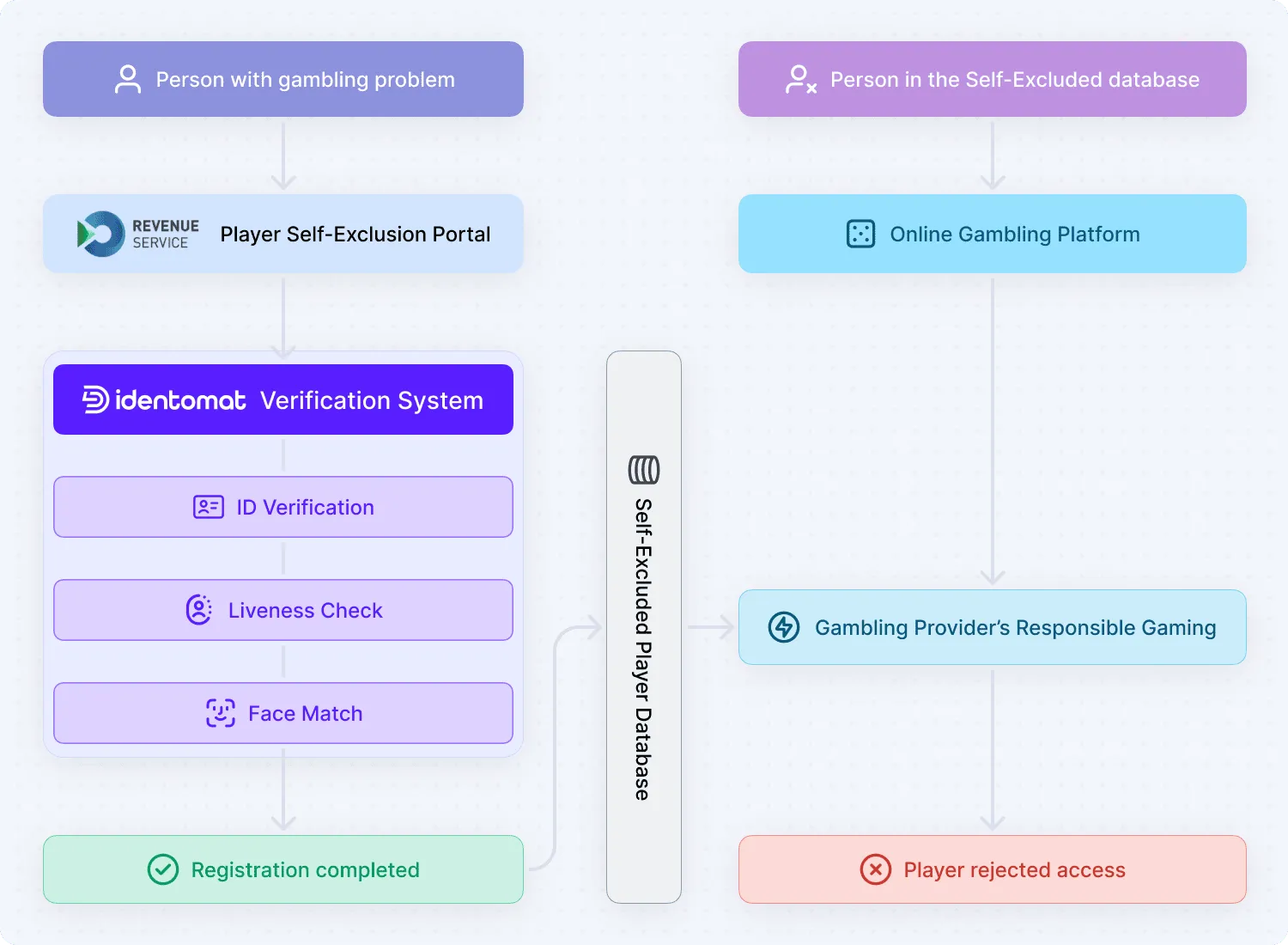
Gambling can range from harmless entertainment to a serious health disorder. The key lies in how one approaches it. In this comprehensive guide, we’ll define these terms, explain why responsible gambling matters, explore recent statistics on gambling addiction and discuss strategies and resources for prevention.
What is Responsible Gambling?
Responsible gambling is often defined as a set of behaviors, policies, and practices that ensure gambling remains a safe and enjoyable activity. This includes setting time and money limits, understanding the odds, and knowing when to stop. The aim is to prevent gambling-related harm before it begins. In other words, it’s about keeping gambling within affordable limits and making sure it doesn’t interfere with one’s personal life or well-being.
Why Responsible Gambling Matters?
From a broader societal perspective, responsible gambling helps reduce the negative outcomes linked to problem gambling: higher rates of mental illness, substance abuse, family conflict, job loss, and in some cases, criminal activity. Gambling addiction can push households into poverty, contribute to domestic violence, and raise public safety concerns. In extreme cases, it can increase suicide risk, a Swedish study found that individuals with gambling disorder were 15 times more likely to die by suicide than the general population.
Economically, gambling addiction carries a significant societal cost. A 2021 report by Public Health England estimated that gambling-related harms cost English society at least £1.27 billion (≈$1.7 billion) per year. These included:
- £62.8 million in financial harm
- £342.2 million in health-related harms
- £79.5 million in employment and education losses
- £162.5 million in criminal activity
- £647 million in excess costs across systems
These figures emphasize that responsible gambling is not just a personal issue, it’s a public one.

Responsible Gambling Practices
While gambling can be entertaining, moderation is essential. Preventing addiction starts with the right environment and responsible practices. Here are some proven strategies:
- Government Regulations for Safer Gambling: Policy plays a key role in shaping a safer gambling landscape. Measures such as enforcing age restrictions, limiting the density and hours of gambling venues, and restricting advertising, especially to vulnerable groups, help reduce exposure.
- Setting Limits (Time and Money): One of the most effective tools is pre-committing to time and spending limits. Many jurisdictions and online platforms offer features like deposit caps, wager limits, and playtime reminders. Studies show that pre-set boundaries can significantly reduce excessive gambling. Even when not required, using these tools voluntarily is a simple way to stay in control.
- Self-Exclusion Programs: For those who recognize a problem, or want to prevent one, self-exclusion offers a structured way to take a break. These programs allow individuals to block access to gambling venues or platforms for a certain period of time.
At Identomat, we’re committed to helping businesses stay compliant while fostering a safer digital entertainment environment. Our identity verification tools enable gambling providers to prevent underage participation - but beyond that, we are continuously working to make the gambling space a safer place for everyone
With that in mind, we’re proud to introduce our latest partnership with the Revenue Service of Georgia:
Success Story: Revenue Service of Georgia
We’re excited to spotlight our recent collaboration with the Revenue Service of Georgia, which launched a new service on May 6, 2025, aimed at improving access to their Gambling Addiction List.
Previously, individuals had to visit a Revenue Service branch in person to self-exclude. Now, thanks to Identomat’s identity verification solution, the process can be completed entirely online.
Here’s how it works:
Anyone in Georgia seeking to self-exclude can visit RS.ge, navigate to the designated ‘’Registration to the gambling dependent Individuals’s list’' service, and review a clear explanation of the policy. By registering, the individual acknowledges that with this service, a citizen of Georgia has the opportunity to enter his/her data into the database of dependent persons, which is a list of individuals who have an irresistible desire to play gambling and/or profitable games and are dependent on them. Georgian legislation prohibits the entry of persons included in the list of dependent persons to play and/or participate in the game at the place of organization of gambling and/or profitable games (except for incentive draws) (including in the case of organizing gambling and/or profitable games in a systematic-electronic form). Data about a person is entered into the list of dependent persons for a period of 5 years. And lastly that data can be removed from the list before the deadline based on a judge's order or in the event of termination of Georgian citizenship.
After agreeing to the policy, the user fills in personal information (ID number, date of birth, name, phone number) and completes a two-factor authentication process via SMS. They then consent to the Revenue Service processing their data.
On the next stage, Identomat steps in. The user is guided through an identity verification process that includes capturing images of their ID or passport and completing a liveness check. Once completed, the individual is asked again if they agree with terms. In case of agreeing individual is successfully added to the Gambling Dependent Individuals’s list and blocked from accessing licensed online gambling platforms. All data in the database is stored in accordance with privacy policies and is treated as strictly confidential.

Why this matters:
Self-exclusion is a vital tool for those looking to take control of their gambling behavior. By simplifying this process, the Revenue Service and Identomat are making meaningful strides in creating a healthier entertainment ecosystem. Since launch, 130 individuals have already used the service to self-exclude, showing early signs of engagement and effectiveness.
Benefits:
Benefits to the End User
- Faster, More Convenient Access to Self-Exclusion: Users can now complete the entire self-exclusion process online - from reading the policy to finishing ID verification and liveness checks, in just a few minutes, without needing to visit a physical Revenue Service branch.
- Reduced Anxiety and Stigma: For many, admitting to a gambling problem can feel shameful, visiting a government office in person might trigger fear of being recognized or judged. Remote registration removes that barrier, offering a discreet, anxiety-free way for self-exclusion.
- Enhanced Privacy and Security: Identomat’s encrypted identity-verification flow ensures that users share only the strictly necessary information, that their data are processed and stored securely in compliance with all security standards, and that storage is handled confidentially with full transparency about how the data will be used.
Benefits to the Business
- Saving Time and Human Resources: The Revenue Service drastically reduces staffing needs and branch traffic by enabling virtual self-exclusion, no more need for in-person appointments, manual data entry, or queue management.
- Streamlined Regulatory Compliance: Operators embedding Identomat’s identity-verification flow automatically block self-excluded individuals in real time, cutting out manual checks and ensuring full adherence to Georgian laws on underage and dependent-person exclusions.
- Double-Barrier Protection: Even if someone tries to circumvent their self-exclusion by using a third party’s documents, Identomat’s rigorous liveness checks and ID matching catch impersonation attempts,keeping excluded individuals out and safeguarding gambling operators from regulatory breaches.
We’re proud to support this initiative and will continue working alongside industry partners and public institutions to foster a safer, more responsible gambling environment - because responsible gambling is everyone’s game.




.webp)